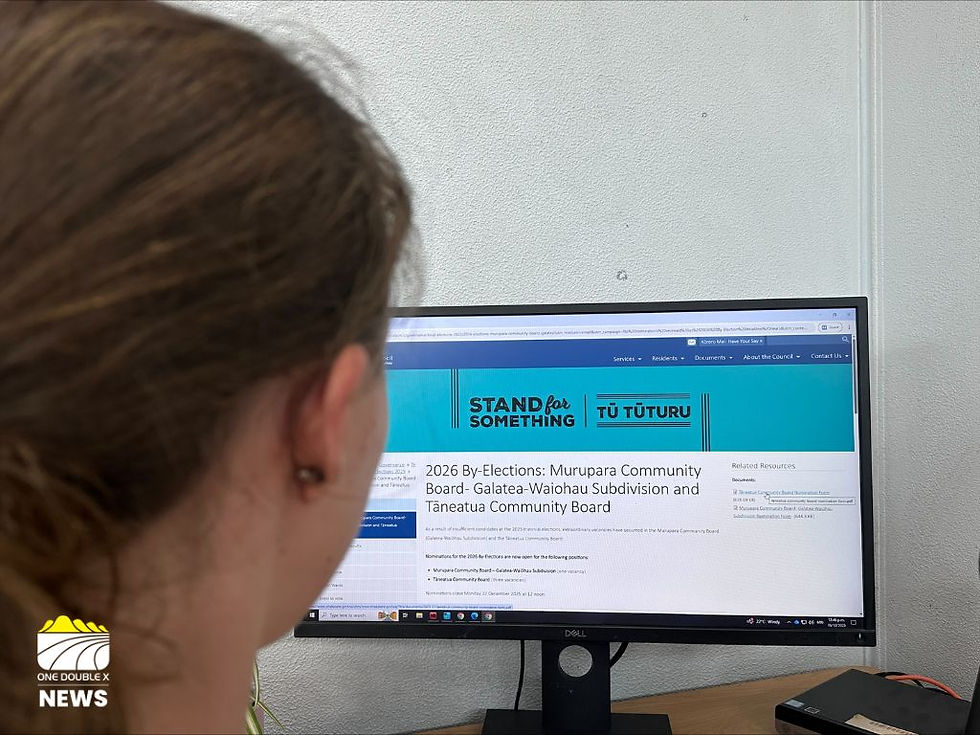24/7 Whānau Support Policy Already in Place at Whakatāne Hospital
- Kieran Watkins
- Sep 16
- 2 min read

A note sent out to Health NZ staff has announced that standard visiting hours are being extended to 24/7 for family members nationwide. Whakatāne delegate for the New Zealand Nurses Organisation Tracy Black said the policy has been in place at Whakatāne Hospital since she started.
RNZ reported that Health NZ chief executive Dale Bramley said the introduction of a new Patient and Whānau Family Support Policy was a step to elevate compassion within their culture.
Tracy Black said having whānau coming in to support the patients 24/7 is the right thing.
"We have to stop and think about... what's best for the patient." "Some of our patients, especially our elderly patients and Māori patients, prefer their own whānau to do some of their [hygiene care]."
She said the whānau care policy is a formal part of Whakatāne Hospital's manaakitanga (support). Black said it's about knowing the boundaries between whose role is what when it comes to clinical support.
"Giving medication, taking [patients] to have procedures done, that belongs in the clinical world."
"As long as the roles are very clearly defined, we should be okay."
Black said the whānau support roles are a supportive mechanism but that the hospital can't rely on them. "They're there to support in a whanau capacity. They're not there to support the nursing side of it, so we need to be really clear about that."
Black said the hospital definitely should be able to run efficiently without whānau support.
"We should be able to run the hospital because we've got sufficient support and staffing for the day."
When asked whether other patients are disturbed by having additional people in the wards, Black said it's about doing what's in the best interest of the patients.
"We also need the patient to rest and heal, so it's just about having some discussions with people around what we can be doing and what we can't be doing."



